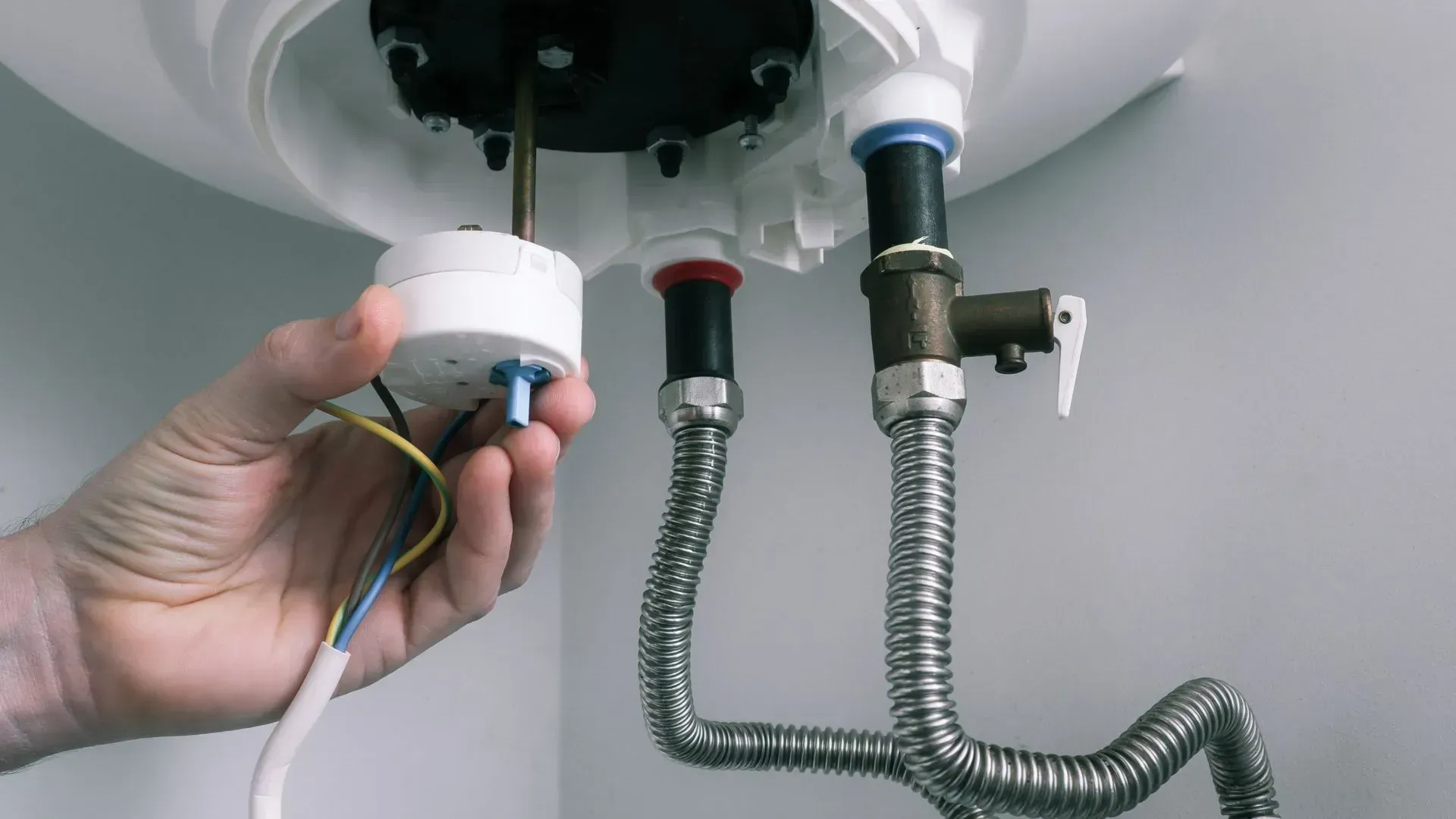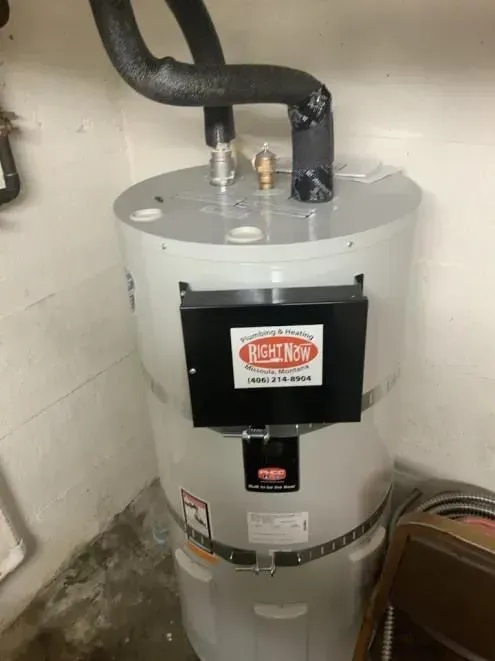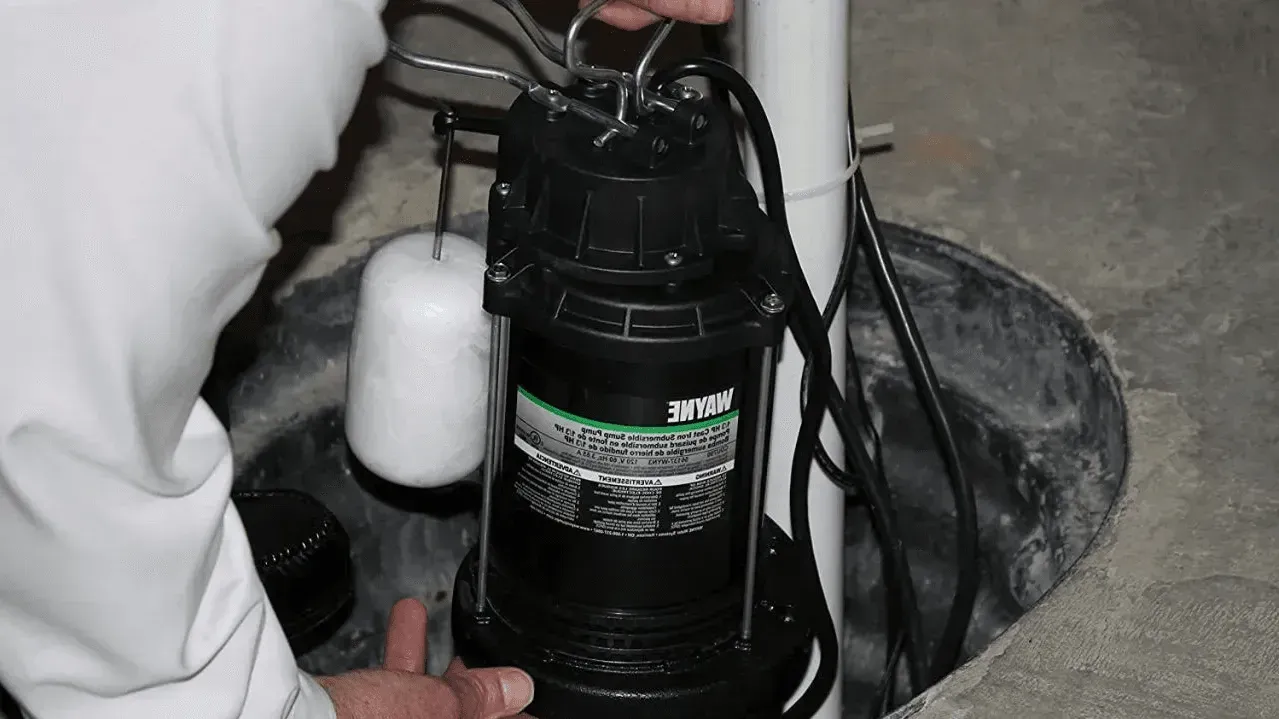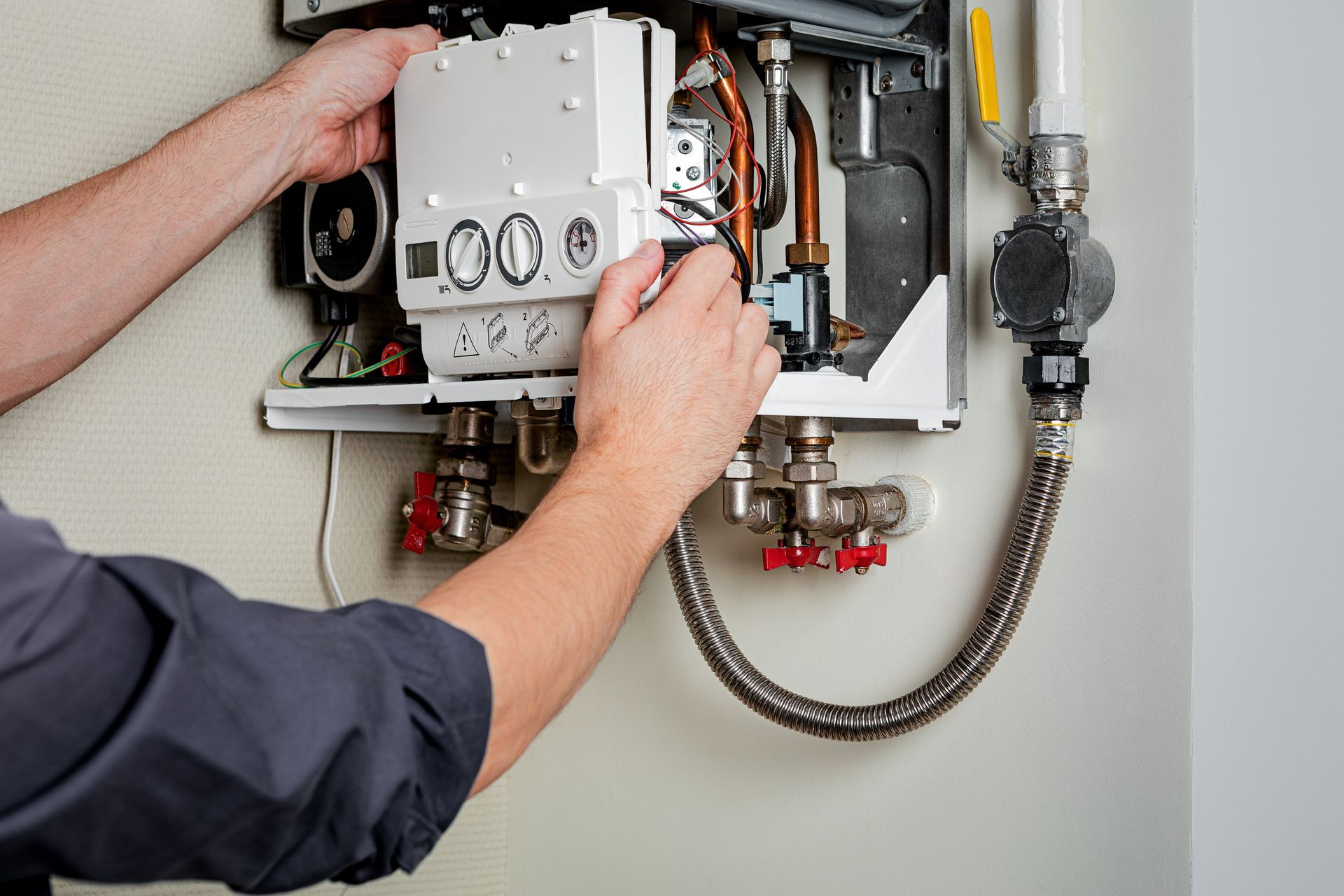Blog
Contact Us
Contact Us
Thank you for contacting us.
We will get back to you as soon as possible.
We will get back to you as soon as possible.
Oops, there was an error sending your message.
Please try again later.
Please try again later.
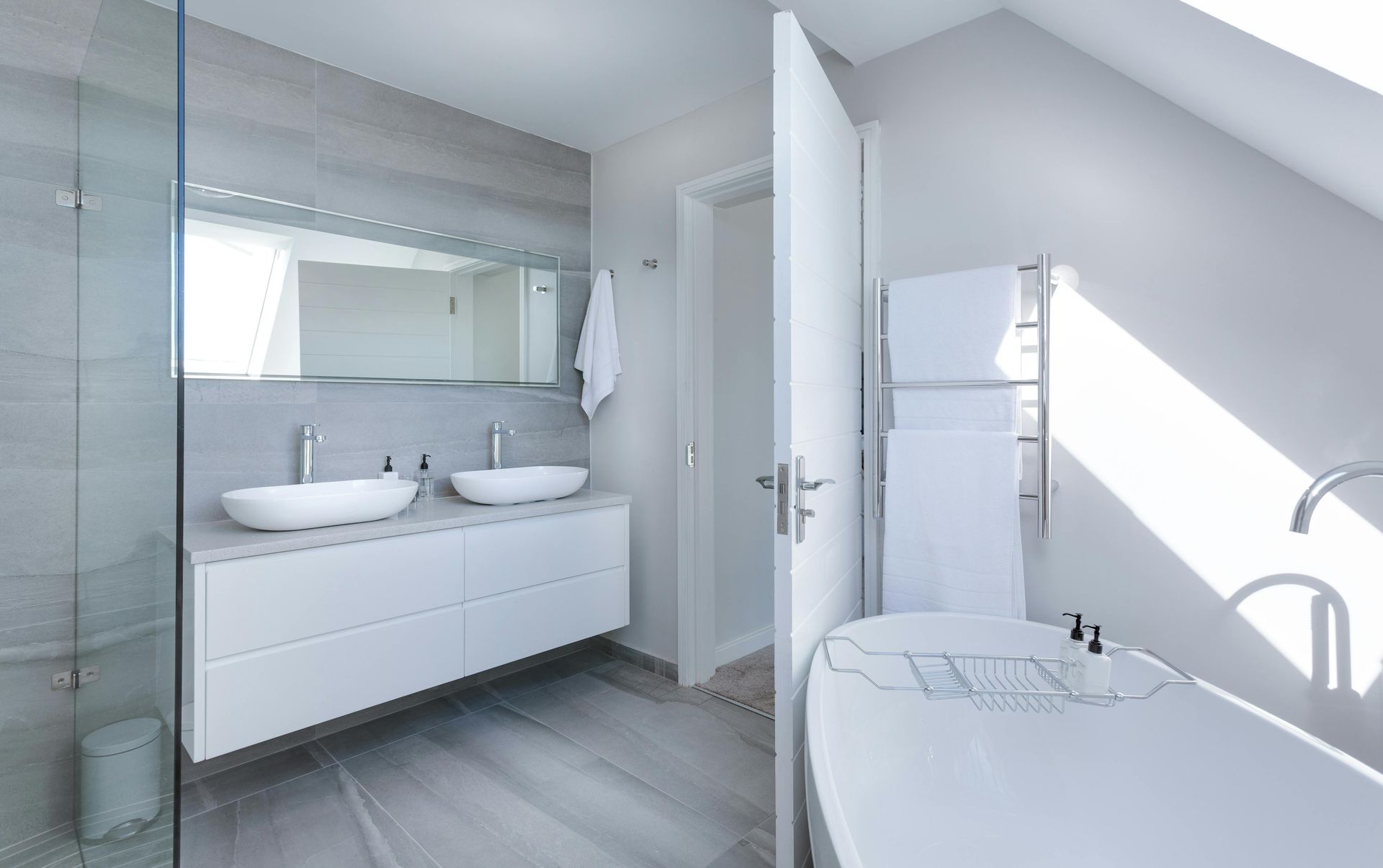
September 23, 2024
Sewer Smell in Bathroom: What Causes It & How to Get Rid of It Bathrooms should smell fresh, but sometimes sewer odors creep in, creating an unpleasant atmosphere. Ignoring these smells can lead to more significant issues, so it’s important to find and eliminate the source. Luckily, there are both DIY fixes and professional solutions available. What Causes Sewer Smell in Bathrooms? The bad odor could come from a variety of issues: Improper Venting: If your plumbing system’s vents are blocked or not installed correctly, sewer gasses can become trapped, leading to bad odors. Dry P-Trap: The U-shaped pipe beneath your sink or shower drain, called a P-trap, is designed to hold water and block sewer gasses from entering your bathroom. If it dries out, those gasses can escape. Cracked or Damaged Pipes: Damage to your bathroom’s plumbing system could be allowing sewer gasses to seep into the room. Blocked Sewer Line: A clog or blockage in the main sewer line can cause sewage to back up, leading to a strong smell in your bathroom. Sewer Gas Leaks: Loose seals or damaged components in your plumbing system can result in sewer gas leaks, which are especially noticeable in smaller spaces like a bathroom. Identifying the root cause is key to getting rid of the smell effectively. How to Get Rid of Sewer Smells in the Bathroom? After identifying the cause, follow these steps to eliminate the smell: Ensure Proper Ventilation: Always ensure your bathroom has adequate airflow. Use an exhaust fan or open a window regularly to keep the space ventilated. Clean Your Sink and Toilet Thoroughly: Regularly clean these areas to prevent bacteria buildup, which can contribute to foul odors. Refill the Water Trap in Your Sink: If the P-trap is dry, pour water down the drain to restore its ability to block sewer gases. Inspect and Repair Damaged Pipes: Look for visible damage in your plumbing and replace cracked or leaking pipes. Clear Blockages in the Sewer Line: If you suspect a blockage in the sewer line, try using a plunger or plumbing snake to remove it. If this doesn’t work, call a professional. Use Natural Remedies and DIY Solutions: A mix of baking soda and vinegar can help neutralize odors in the drain. Activated charcoal or coffee grounds can absorb unwanted smells from the air. Professional Solutions for Removing Sewer Smell in Bathroom: If DIY methods fail, it’s best to hire a professional plumber. They have the tools and expertise to identify hidden issues and fix them effectively, ensuring long-term relief from the smell. Long-Term Solutions and Prevention: To avoid future sewer smells, consider regular maintenance. Professionals can perform thorough inspections of your plumbing system, ensuring that any issues are caught early, preventing long-term damage and unpleasant odors. Final Remarks on Dealing with Sewer Smell: Sewer smells in the bathroom are not just inconvenient but can also indicate more serious plumbing issues. Use the outlined steps to resolve the problem, or contact a professional to ensure a thorough inspection and permanent fix. FAQ’s Will the sewer smell go away on its own? Not likely. The smell usually signals a more significant issue that needs to be addressed, such as a dry P-trap or blocked vent. Can sewer gas come up through the toilet? Yes, if the wax ring or venting system is faulty, sewer gasses can escape into your bathroom. Is there a tool to detect sewer gas? Yes, plumbers often use smoke tests and specialized gas detectors to locate leaks. Can a plumber get rid of sewer smell? Absolutely! Plumbers can find and repair the root cause, ensuring long-term relief from sewer smells.

September 9, 2024
Dealing with a leaky faucet in your home? Not only can it be annoying, but it can also lead to significant water waste and increased bills. Fortunately, fixing a dripping faucet is an easy do-it-yourself task. Many homeowners can do it with just a few basic tools. This guide will help you DIY common problems with kitchen and bathroom faucets so you can save money and use less water. Identify the Type of Faucet
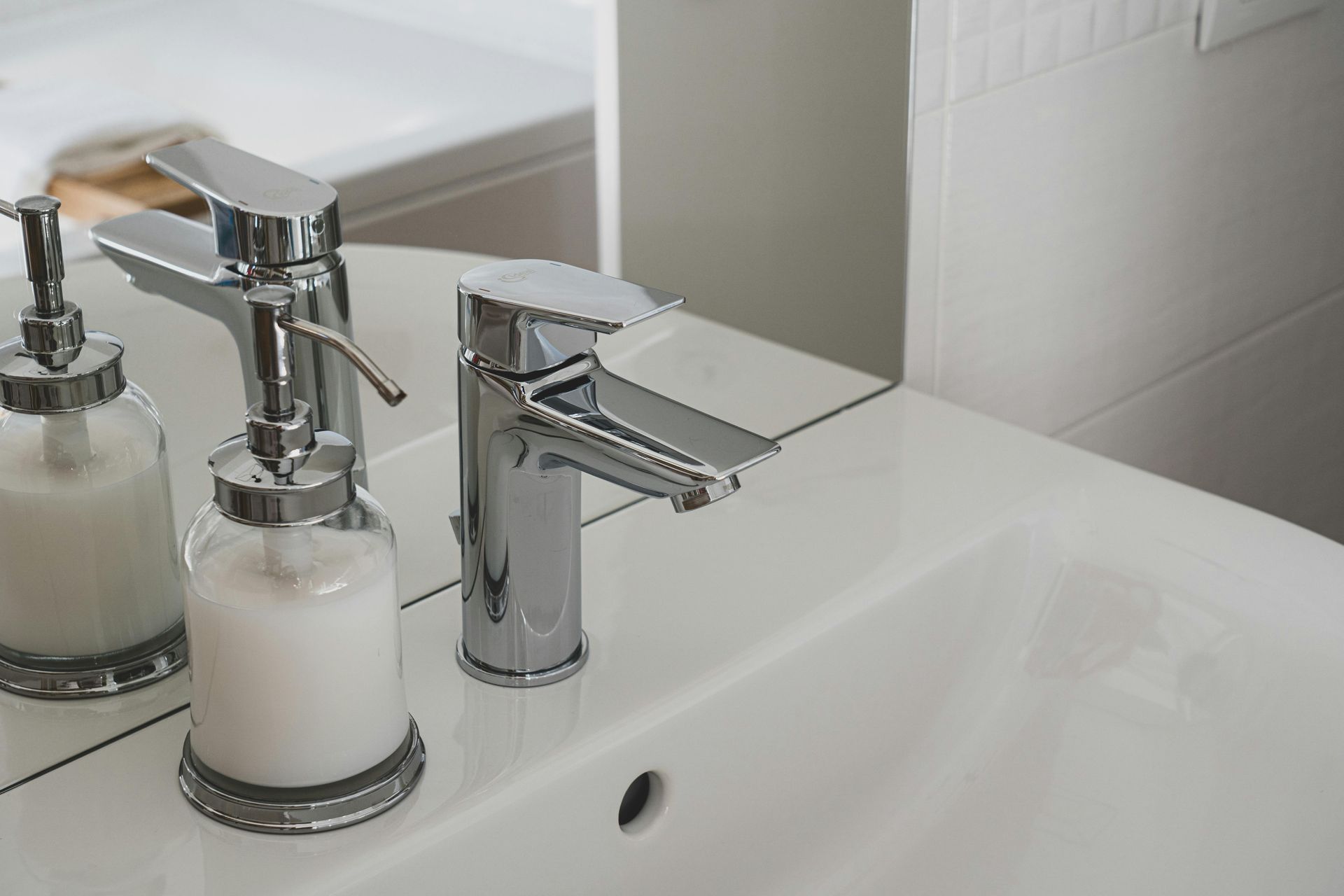
September 6, 2024
If your drains are clogged, you might be tempted to use Drano for a quick fix. But is Drano bad for your pipes? The truth is, while Drano may seem convenient, its harsh chemicals can cause significant long-term damage to your plumbing system. By giving you the information to safeguard your plumbing, you can avoid costly mistakes and keep your system in tip top shape. How Does Drano Work? (And Why It’s Risky) Drano works by creating a chemical reaction that heats up and dissolves the materials causing your clog. While it may clear the drain, the heat and corrosive chemicals can also erode your pipes, especially if you use it regularly. Homes with older pipes or PVC piping are at particular risk. In the long run, this can lead to leaks, burst pipes, or other costly repairs. So while Drano might provide a temporary solution, it’s not a risk-free fix for your home’s plumbing. If you’re facing frequent clogs and want a more reliable solution, learn about our plumbing services here . Safer Alternatives to Drano Many homeowners worry about the cost of calling a plumber, so it’s understandable that you’d want to try handling small clogs yourself. The good news is there are safe and effective alternatives to Drano that won’t risk damage to your pipes: Plungers: A simple plunger can resolve most clogs in sinks or toilets without introducing chemicals. Drain Snake: This tool can reach deeper into the pipes to remove blockages mechanically, which won’t harm the integrity of your plumbing. Baking Soda & Vinegar: A natural, chemical-free solution that can help break down smaller clogs safely.If your drains are clogged, you might be tempted to use Drano for a quick fix. But is Drano bad for your pipes? The truth is, while Drano may seem convenient, its harsh chemicals can cause significant long-term damage to your plumbing system. By giving you the information to safeguard your plumbing, you can avoid costly mistakes and keep your system in tip top shape.
